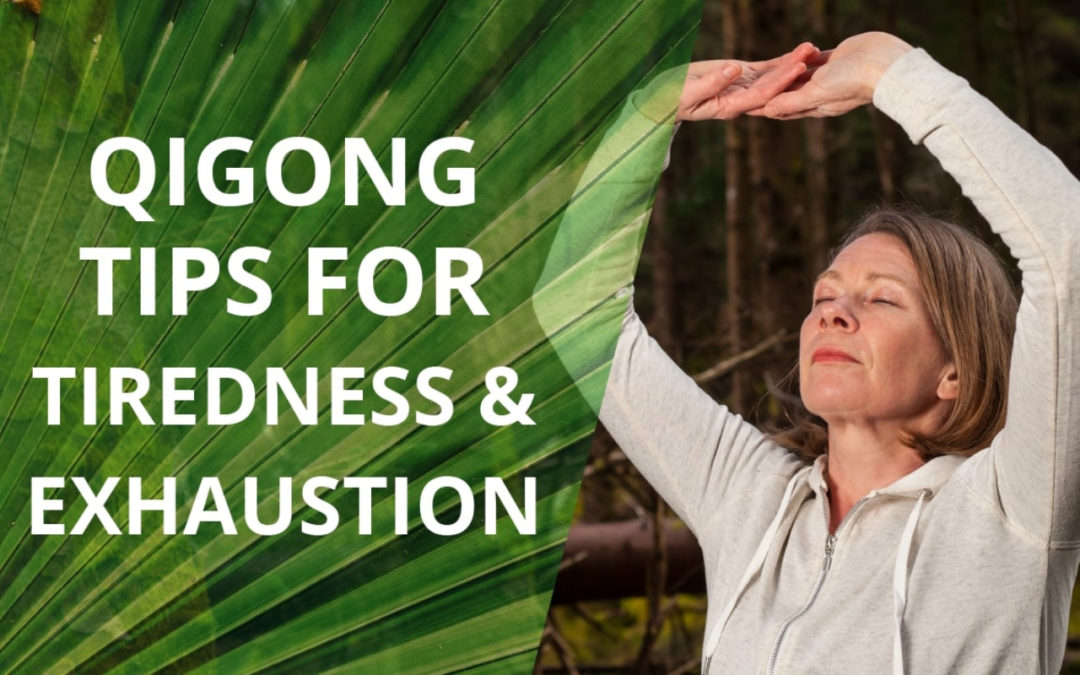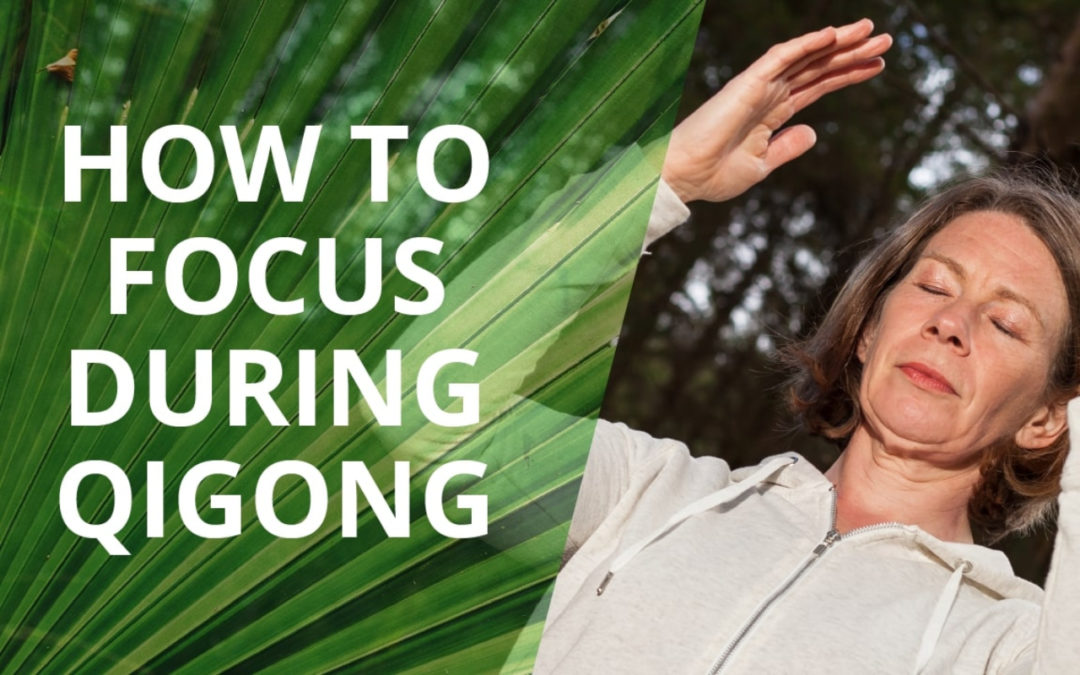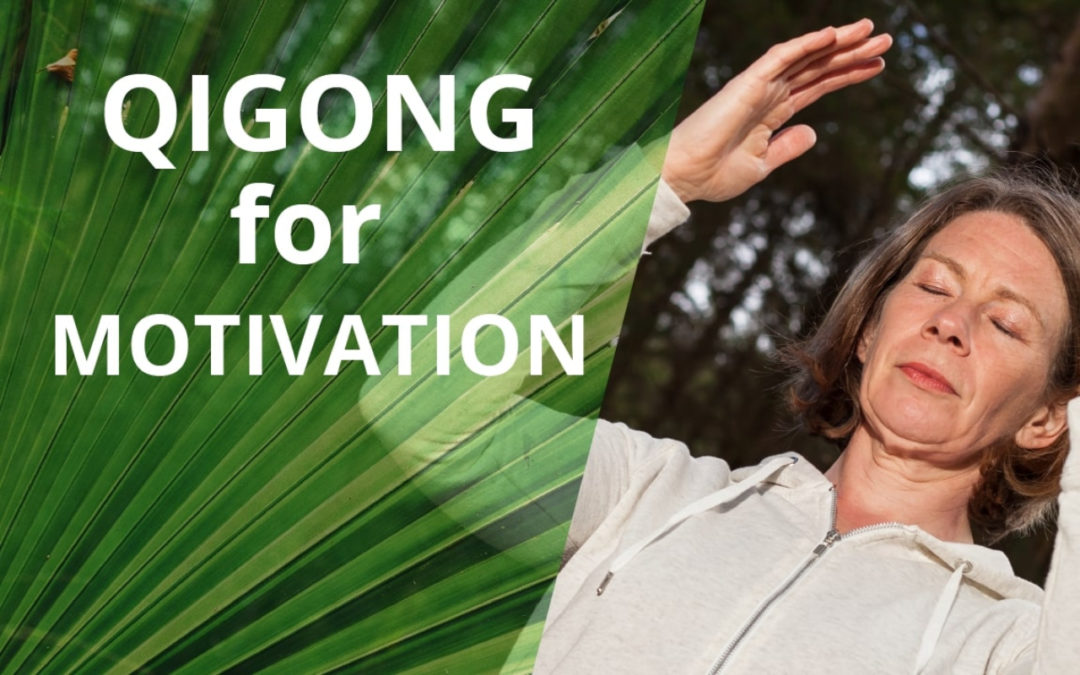
by janicetucker | 11 Aug 2017 | Qigong, Qigong & Emotional Issues, Qigong Routines
Overwhelm is something we all struggle with on one level or another. Our modern lives are so much busier than that of previous generations. We seem to have to juggle more and more things, keeping the plates spinning. If this is your constant challenge then this video will show you how to use Qigong for overwhelm and how to minimise this stress inducing state.
Janice Tucker is a practitioner of Traditional Chinese Medicine and Medical Qigong, and the founder of the Space To Relax online programme of Qigong video lessons.
Please don’t forget to subscribe to my YouTube channel by clicking the red “Subscribe” button so you don’t miss my regular videos which are full of useful health enhancing tips. These videos will help you to benefit your health and prevent illness from arising in the first place. Also please give this video a “Like” if you found it informative.
What Is Overwhelm?
Overwhelm is a FEAR of not being able to get everything done. The result is that you feel stressed, paralysed and like you have no time. You may feel stuck, not sure which thing to tackle next. A lack of direction or feeling you’re not moving forwards is common. You may feel you are not achieving everything you want to achieve. There are many other ripple effects resulting from overwhelm. Suffice to say, it’s not the best feeling!
3 Methods To Tackle Overwhelm
1. Get Present
Overwhelm often creates anxiety because of the fear of not being able to get future tasks done. Bring yourself into the present as much as possible. Do this by using Qigong for overwhelm, or a daily meditation practice. A regular routine will make a huge difference to how you feel about overwhelm.
Doing activities requiring absolute focus in the present moment are also excellent for tackling overwhelm. I go surfing which keeps me in the present as otherwise I’m in danger of falling off my board at a critical moment! Other physical activities such as mountain biking or anything that requires focus in the present moment help to diminish feelings of overwhelm. For those of you less physically active, creative activities such as painting, drawing, pottery enable you to be in the present more often. Adopt more activities like these and make them a habit. Then your feelings of overwhelm will diminish.
2. Start saying “No”
Develop the practice of not committing to people immediately. You don’t have to say yes to everything! Instead tell people that you will get back to them when you’ve had chance to check your plans or that you will check your diary and let them know. This will help you to avoid taking on too much. Also be sure to delegate as much as possible at work and at home. This will take the pressure of overwhelm off you. We are all responsible for creating our own reality. We have a choice as to whether to take on too much. If you want to tackle overwhelm something will have to change and that starts with making different choices.
3. List 3 Things To Achieve The Next Day
Do this the night before. Don’t give yourself too much to do. A huge list can be daunting when you are feeling overwhelmed. We can often feel paralysed, stuck and as though we are not moving forward. Over time this leads to a lack of confidence that we’ll ever be able to progress. You may feel like life is passing you by and you are missing out. Setting yourself the goal of only 3 things to do the next day breaks through the stagnation. It gives you a sense of progress and achievement. This leads to increased confidence that you can tackle overwhelm and you will start to feel better.
What Do I Do Next?
For more information on how to use Qigong for overwhelm head over to a previous video on my website called “Qigong for Motivation“. Here I share with you how to deal with the paralysis and stagnation that can accompany overwhelm.
To learn even more Qigong for overwhelm mimimisation go to the Space To Relax homepage. There you can sign up to receive three free video lessons which will be delivered to you by e-mail over the course of a few days. Also, for a free audio meditation “Calm Your Busy Mind In 8 Minutes” scroll to the bottom of the Space To Relax homepage.
Please don’t forget to subscribe to my YouTube channel by clicking the red “Subscribe” button. Then you won’t miss my regular videos which are full of useful health enhancing tips. Also please give this video a “Like” if you learned more about Qigong for mind chatter and how to control it.
If you are on Facebook head over to my free group, “Space To Relax Free Group” and leave any comments or questions for me there. I’ll be happy to answer them. Also, by joining this group, you will receive regular posts of Qigong articles and videos with really useful tips about how to use Qigong to improve your state of health.
https://spacetorelax.com

by janicetucker | 28 Jul 2017 | Qigong, Qigong & Emotional Issues, Qigong Routines
If you’re anything like me you’ll go thorough times when you just can’t switch off the endless mind chatter and over thinking. If this sounds like you then you’ll find this video invaluable. Below I share with you my 3 tips on how to use Qigong for mind chatter control!
Janice Tucker is a practitioner of Traditional Chinese Medicine and Medical Qigong. She is also the founder of the Space To Relax online programme of Qigong video lessons.
Please don’t forget to subscribe to my YouTube channel by clicking the red “Subscribe” button above. That way you won’t miss my regular videos which are full of useful health enhancing tips. These videos will help you to benefit your health and prevent illness from arising in the first place. Also please give this video a “Like” if you found it informative.
It can be exhausting when you just can’t seem to turn your brain off. What can often happen is that all of this chaotic brain activity ends up stagnating us. We end up feeling paralysed by the overwhelm in our brains. We might then crucify ourselves, beating ourselves up for procrastinating and not moving forward. Does any of this sound familiar?
3 Methods To Minimise Mind Chatter
1. Breathe into your lower belly. Inhaling into the lower abdomen (Dan Tian) area calms your mind. It also brings the chaotic Qi (energy) in your head down into your belly so that you feel more grounded. This will result in your mind being clearer and more focused. When you are clear and focused in your mind you become more efficient at carrying out everyday activities. This has the knock on effect of saving you time so that you get more done resulting in less stress!
2. Give yourself something else to think about. If you are distracted by busy thoughts and can’t concentrate on your breathing the giving yourself something else to think about can help. As you breathe in say the mantra to yourself, “I’m breathing in”. As you breathe out say to yourself, “Relax”. It is very difficult for the mind chatter to creep in if you are saying these words to yourself. This method is a perfect example of how to use Qigong for mind chatter and its control.
3. Dump the mind chatter. Write down any worries, things to do, emotions or distractions on a piece of paper. Once they are out of your brain and on paper you will notice a huge difference. This is because you are clearing brain space and no longer have to hold busy thoughts in your mind as they are safely on paper.
What Do I Do Next?
For more information on how to use Qigong for mind chatter head over to a previous video on my website called “How to Calm Down With Qigong” where you can learn a even more detail about the breathing methods I describe here.
To learn even more about how you can use Qigong for mind chatter minimisation go to the Space To Relax homepage. There you can sign up to receive three free video lessons which will be delivered to you by e-mail over the course of a few days. Also, for a free audio meditation “Calm Your Busy Mind In 8 Minutes” scroll to the bottom of the Space To Relax homepage.
Please don’t forget to subscribe to my YouTube channel by clicking the red “Subscribe” button. Then you won’t miss my regular videos which are full of useful health enhancing tips. Also please give this video a “Like” if you learned more about Qigong for mind chatter and how to control it.
If you are on Facebook head over to my free group, “Space To Relax Free Group” and leave any comments or questions for me there. I’ll be happy to answer them. Also, by joining this group, you will receive regular posts of Qigong articles and videos with really useful tips about how to use Qigong to improve your state of health.
https://spacetorelax.com

by janicetucker | 3 Jul 2017 | Qigong, Qigong Practice Guidelines & General Information, Qigong Routines
Today I’m going to be discussing Qigong for seniors and how it can be used for regulating stress as we get older.
Janice Tucker is a practitioner of Traditional Chinese Medicine and Medical Qigong, and the founder of the Space To Relax online programme of Qigong video lessons.
Please don’t forget to subscribe to my YouTube channel by clicking the red “Subscribe” button. That way you won’t miss my regular videos which are full of useful health enhancing tips. These videos will help you to benefit your health and prevent illness from arising in the first place. Also please give this video a “Like” if you found it informative.
A couple of months ago I received and e-mail from Sally Perkins who is a content manager for a senior advice site called Senior Advisor. She had watched a previous video on my Space To Relax website called “Qigong for Stress Relief” and was interested in how Qigong could help the elderly. She very helpfully suggested that I cover the use of Qigong for seniors and how it can help them with stress relief.
Sally kindly provided me with an introduction to this post, highlighting the importance of regulating our stress levels as we age. The introduction from Sally is below followed by my top 3 tips using Qigong for seniors in order to minimise stress levels.
Sally’s Introduction – Don’t Let Stress Get You Down!
Let’s face it: we are all busy bees. As we get older, it is important to our overall mental and physical health to keep our stress levels in check, or else there are many negative health issues that will arise. There are both short and long term effects of leading a high-stress lifestyle, including:
1. Weakening the immune system
2. Insomnia and sleep issues
3. High blood pressure and high blood sugar levels
4. Skin rashes and acne breakouts
5. Digestive issues
6. Headaches and trouble focusing
By trying to avoid things that bring you stress, whether it be managing your time better at work or trying to steer clear of situations or people who might add to your frustrations, you can better maintain a healthy lifestyle. This guide will show you how to focus on ways to relax and make a true difference in your energy levels which will help you to avoid the negative impact of stress that is increasingly damaging to your health as you age.
Qigong For Seniors – My Top 3 Tips
As Sally rightly points out, if you can avoid stressful situations in the first place that will go a long way towards maintaining a healthy, balanced life. However that is not always possible due to lifestyle, family and work situations. If you do find yourself becoming stressed here are my top three Qigong for seniors tips which you can use to help yourself. This advice applies to senior members of our population and also carers of the elderly as they can also suffer from stress.
1. Breathe Into Your Belly. This Qigong exercise will instantly ground and calm your mind. You can learn how to do this by signing up for my free 3 part video series which I mention at the end of this post. Belly or abdominal breathing is Lesson 1.
2. Relax as soon as possible after experiencing stress to allow your body and mind to recover. After doing this, if you still feel stressed, refer to Lesson 3 in the free video series showing you how to get rid of “waste Qi” or energy/feelings from your body. Also take a look at one of my previous videos on the Space To Relax website called “Qigong for Cleansing“.
3. Develop a Daily Qigong Routine. A daily routine of Qigong or meditation will allow you to better cope with future stressful situations. Bit by bit you will notice that you become better at taking stressful events in your stride.
Qigong For Seniors: What Should I Do Next?
To read more about how to best reduce your stress as you get older go to senior advisor.com and read the following article on “The Many Negative Effects of Stress On Health“.
To learn the Qigong methods I mention above go to the Space To Relax homepage. There you can sign up to receive three free video lessons. They will be delivered to you by e-mail over the course of a few days so check your spam/promotions folder. Also, for a free audio meditation “Calm Your Busy Mind In 8 Minutes” scroll to the bottom of the Space To Relax homepage.
Please don’t forget to subscribe to my YouTube channel by clicking the red “Subscribe” button. Then you won’t miss my regular videos which are full of useful health enhancing tips. Also please give this video a “Like” if you learned much more about how stress affects us as we get older and what to do about it.
If you are on Facebook head over to my free group, “Space To Relax Free Group” . You can leave any comments or questions for me there. I’ll be happy to answer them. Also, by joining this group, you will receive regular posts of Qigong articles and videos with really useful Qigong tips.
If you’d like some tips on how to make changes to your home in order to continue to move around with confidence then read this guide on “Aging in Place“.
https://spacetorelax.com

by janicetucker | 15 May 2017 | Qigong, Qigong Practice Guidelines & General Information, Qigong Routines, Qigong To Help Manage Specific Health Conditions
Some of the most common things my students say to me are, “I’m exhausted”, “I have no energy to motivate myself”, I’m tired all the time”. How many of you find yourselves saying these phrases, or ones like them, out loud? In this video I’m going to show you three fabulous tips using Qigong for tiredness. None of them take more than 5 minutes for you to achieve the transformation from exhausted to energised so get ready to follow along!
Janice Tucker is a practitioner of Traditional Chinese Medicine and Medical Qigong. She is also the founder of the Space To Relax online programme of Qigong video lessons.
Please don’t forget to subscribe to my YouTube channel by clicking the red “Subscribe” button so you don’t miss my regular videos which are full of useful health enhancing tips. These videos will help you to benefit your health and prevent illness from arising in the first place. Also please give this video a “Like” if you found it informative.
3 Tips On How To Use Qigong For Tiredness
1. Abdominal Breathing
By using simple abdominal breathing for only a few minutes you can extinguish exhaustion and increase your energy levels. This is because abdominal breathing is a more efficient way of breathing. You inhale more oxygen per breath than shallow chest breathing and thereby increase your energy. See my previous video blog on “How To Do Abdominal Breathing or Diaphragmatic Breathing” to learn this.
2. Simple Stretching
See the clip in the video to learn how to do a simple stretch up to the sky. This is a very simple way of utilising Qigong for tiredness.
Also, a simple twist of the upper body, head and neck will energise your whole spine with Qi and give you a lift in less than one minute if you are feeling exhausted.
3. Qigong Face Wash
Rub your hands together until they are hot then place them on your face. Rub your face up and down with your hands until you feel the heat has left the hands. This simple face wash is excellent for ridding any mental tiredness. It will instantly leave you feeling more awake and alive!
So, if you would like to learn some Qigong for yourself why not give it a go by heading over to the Space To Relax homepage? There you can sign up to receive three free video lessons which will be delivered to you by e-mail over the course of a few days. Also, for a free audio meditation “Calm Your Busy Mind In 8 Minutes” scroll to the bottom of the Space To Relax homepage to sign up for that.
Please don’t forget to subscribe to my YouTube channel by clicking the red “Subscribe” button. That way, you won’t miss my regular videos which are full of useful health enhancing tips. Also please give this video a “Like” if you learned much more about how to use Qigong for tiredness and exhaustion.
You can also head over to my free group on Facebook, “Space To Relax Free Group“. Leave any comments or questions for me there and I’ll be happy to answer them. By joining this group you will receive regular Qigong articles and videos with useful tips about how to use Qigong to improve your state of health.
https://spacetorelax.com

by janicetucker | 20 Apr 2017 | Qigong, Qigong Practice Guidelines & General Information, Qigong Routines
Qigong is the practice of co-ordinating your movement, breath and mind to promote the free flow of energy (Qi) around your body. In this way the body can heal itself and come back into a healthy balance. One of the difficulties my students experience is how to focus during Qigong and stay relaxed enough to allow for the open flow of Qi. They often find it hard to balance the mind, the breath and the movement with the relaxation that is necessary in order to promote unimpeded Qi flow. This video on how to focus during Qigong will show you exactly how to do this.
Janice Tucker is a practitioner of Traditional Chinese Medicine and Medical Qigong. She is also the founder of the Space To Relax online programme of Qigong video lessons.
Please don’t forget to subscribe to my YouTube channel so you don’t miss my regular videos which are full of useful health enhancing tips. These videos will help you to benefit your health and prevent illness from arising in the first place. Also please give this video a “Like” if you found it informative.
How To Focus During Qigong Practice
1. “Sloppy”, casual focus of your mind
Pay “sloppy” almost casual focus with your mind to what you are doing. Do not concentrate with a “laser beam” focus on what you are trying to do. Rather, pay fleeting attention to your movements and breath, then let it go.
2. Observe
Observe what is happening as though you are watching and playing no part. You are simply observing the exercise, the flow of Qi, the breath and sensations in your body.
3. Relax and breathe
All you are doing is allowing, making a clear pathway for the Qi to flow. You do this by relaxing. Relaxation is the key.
4. The Qi Reorders Itself
By relaxing the Qi reorders itself because you are not doing anything to block this from happening.
5. Health and balance are restored
Once the Qi has reordered itself this promotes the self-healing mechanisms in your body and mind so that your physical, mental and emotional health come back in to equilibrium.
Summary
If you focus too much, like a laser beam, all you will do is give yourself a headache. Don’t try to force things too much. You are not moving the Qi with your body, breath or mind. The more you try to force things to happen the more the Qi stagnates. You are simply relaxing and breathing, paying casual attention so that the pathways along which Qi can flow become more open, unobstructed and unimpeded. It should feel effortless, calm and relaxed. This is the whole essence of how to focus during Qigong practice.
What Do I Do Next?
So, now you know how to focus during Qigong practice why not give it a go by heading over to the Space To Relax homepage? There you can sign up to receive three free video lessons which will be delivered to you by e-mail over the course of a few days. Also, for a free audio meditation “Calm Your Busy Mind In 8 Minutes” scroll to the bottom of the Space To Relax homepage to sign up for that.
You can also head over to my free group on Facebook, “Space To Relax Free Group” and leave any comments or questions for me there. I’ll be happy to answer them. Also, by joining this group, you will receive regular Qigong articles and videos with useful tips about how to use Qigong to improve your state of health.
Please don’t forget to subscribe to my YouTube channel so you don’t miss my regular videos which are full of useful health enhancing tips. Also please give this video a “Like” if you learned much more about how to focus during Qigong practice.
https://spacetorelax.com

by janicetucker | 21 Feb 2017 | Qigong, Qigong & Emotional Issues, Qigong Practice Guidelines & General Information, Qigong Routines
Recently I asked the members of my “Space To Relax Free Group” on Facebook what they would like to learn about regarding Qigong and how it can help them. One great suggestion from Kathy was about how to stay motivated, on track and avoid slipping back into bad habits. This is such a great question! Today I’m going to be talking to you about how to stay motivated and also how to use Qigong for motivation.
Janice Tucker is a practitioner of Traditional Chinese Medicine and Medical Qigong, and the founder of the Space To Relax online programme of Qigong video lessons.
Please don’t forget to subscribe to my YouTube channel by clicking the red “Subscribe” button above so you don’t miss my regular videos which are full of useful health enhancing tips. These videos will help you to benefit your health and prevent illness from arising in the first place. Also please give this video a “Like” if you found it informative.
My 7 Top Methods Using Qigong For Motivation
1. Choose something you like to do
To stay motivated for Qigong or any other exercise it is important to choose something that you like to do. By now many of you will have access to a number of Qigong methods. Choose your favourites as then you are more likely to maintain your practice.
2. Pick a regular time to practice
It is easier to stay on track with Qigong (or any good habit) if you pick the same time every day to practice. First thing in the morning works best for me as then my practice is done and I have set myself up in the best possible way for the rest of the day. Also, if I have more time at the end of the day, I’ll do more. A regular practice time will really help you to stay on track. Once you can do this, you will see how you can use Qigong for motivation in other areas of your life.
3. Keep a record of you observations
Keeping a diary or journal of your observations will allow you to see how much progress you are making. Once a few weeks have passed and you look at your journal you will see the difference between where you were before and where you are right now.
4. Practice with friends and family
Certainly with Qigong there is huge benefit in practising with friends and family. The presence of a group enhances the “Qi field” (see my blog on “What is a Qi Field?“) of everyone practising. Similarly, with other exercise such as walking, running, cycling, it is much easier to do it and stay motivated as you can encourage one another.
5. Celebrate your successes
Don’t give yourself a hard time if you don’t practice or exercise every single day. Instead focus on all the good things that you are doing. If you have set yourself a milestone, e.g. to practice 10 minutes of Qigong every day for one week, then when you achieve this CELEBRATE! Go out and do something that you love to do to celebrate that milestone. This is important.
6. Be kind to yourself
If you miss a couple of days of practice, don’t give yourself a hard time. Simply get back on track as soon as possible. Realise that you are only human. You are not a robot. You can pick up your goal and resume progressing towards it as soon as possible.
7. Start small to get motivated
If you find you have no motivation to get going then pick the tiniest thing that you feel you would like to do and just do that. Start with a small thing and build it up slowly. Over time you will find that things do get easier for you to carry forward with some momentum.
If you want to start small and learn some Qigong by practising for a few minutes each day, or getting really clever, and learning how to integrate Qigong into your day then head over to the Space To Relax homepage. There you can sign up to receive three free video lessons which will be delivered to you by e-mail over the course of a few days. Also, for a free audio meditation “Calm Your Busy Mind In 8 Minutes” scroll to the bottom of the Space To Relax homepage to sign up for that.
I’d love to hear what you do to stay motivated. What do you do to stop yourself from slipping back into bad habits? How do you use Qigong for motivation? You can head over to my free group on Facebook, “Space To Relax Free Group” and leave any comments or questions for me there. I’ll be happy to answer them. Also, you will receive regular postings with useful tips about how to use Qigong to improve your state of health.
Please don’t forget to subscribe to my YouTube channel by clicking the red “Subscribe” button on my channel page. That way, you won’t miss my regular videos which are full of useful health enhancing tips. Also please give this video a “Like” if you learned much more about how to use Qigong for self care.
https://spacetorelax.com







